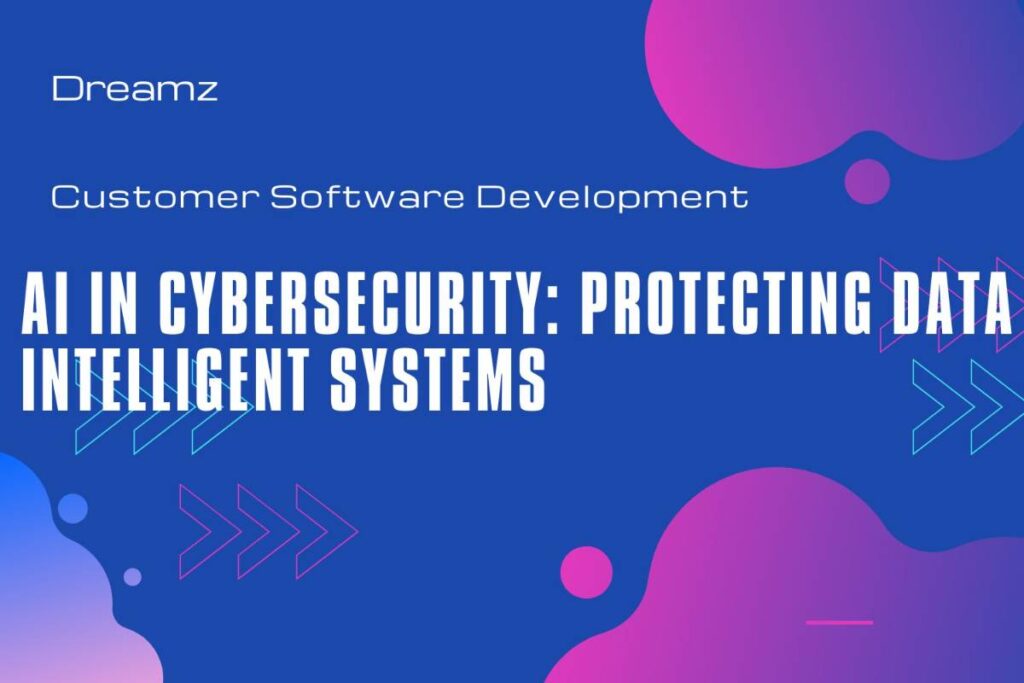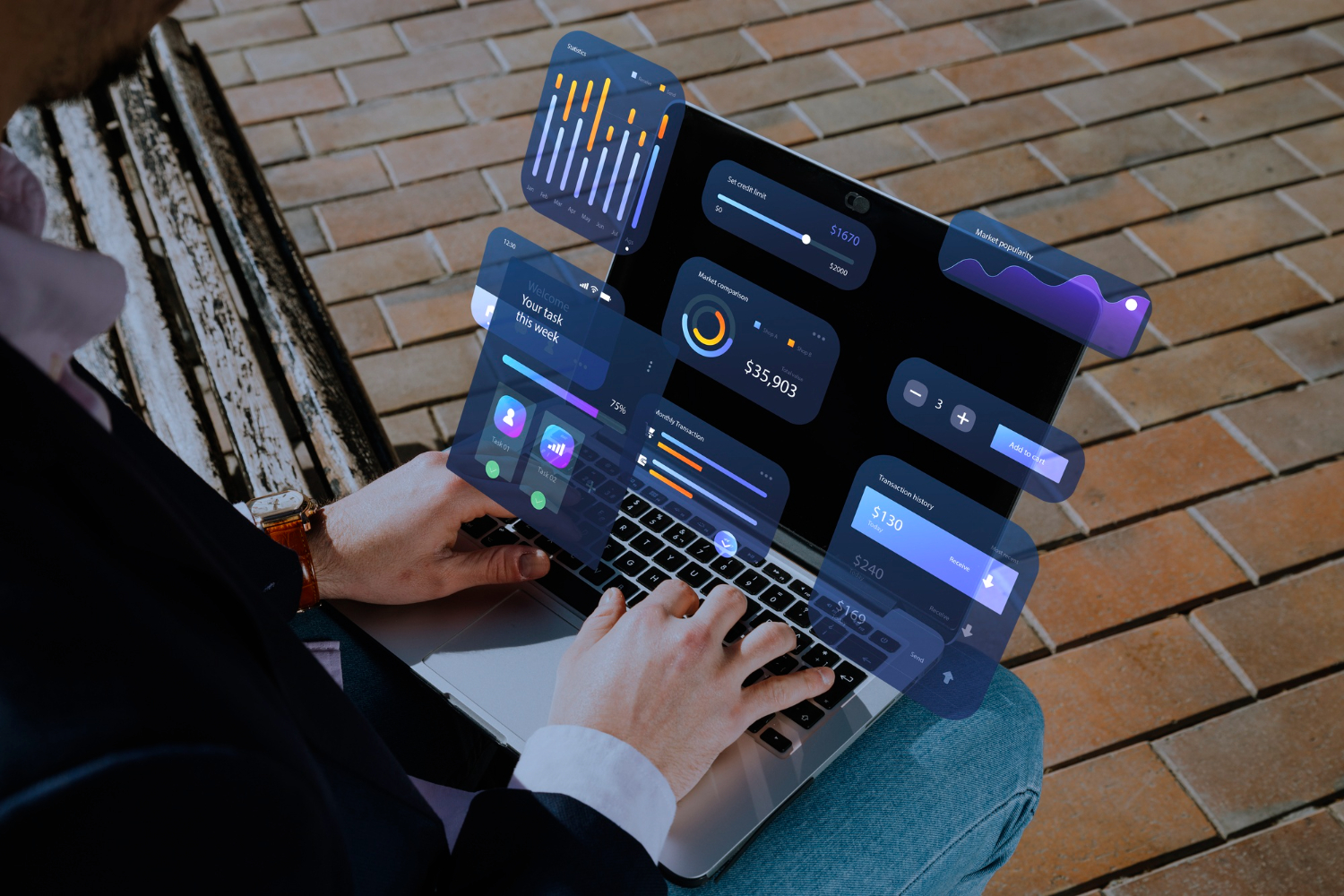In today’s digital-first world, data is the new currency. Businesses across industries from banking and healthcare to retail and logistics are increasingly reliant on digital platforms for operations and customer engagement. However, with this dependency comes a sharp rise in cyber threats. From ransomware attacks and phishing scams to sophisticated malware and data breaches, no company is truly safe.
This is where Artificial Intelligence (AI) is changing the game. AI in cybersecurity is not just a trend it is a necessity. Intelligent systems can analyze massive datasets, detect anomalies, predict threats, and respond faster than any human-driven security model. For businesses aiming to secure their digital infrastructure, collaborating with a custom software development company in Pune can ensure AI-driven, tailor-made cybersecurity solutions that protect both business data and customer trust.

The Role of AI in Cybersecurity
AI brings speed, precision, and adaptability to the fight against cybercrime. Unlike traditional systems that rely heavily on predefined rules, AI-driven systems use machine learning and advanced algorithms to:
- Detect Suspicious Activities: AI analyzes behavioral patterns in networks to identify unusual activity.
- Prevent Threats in Real-Time: Instead of reacting after damage, AI can stop threats as they emerge.
- Adaptive Learning: AI evolves with each new attack, strengthening defenses over time.
Applications of AI in Cybersecurity
1.Fraud Detection in Banking & Fintech
AI helps banks and fintech companies detect fraudulent transactions in real time by analyzing customer behavior, transaction patterns, and anomalies. It ensures secure payments while reducing false positives and financial losses.
Example Use Case:
If a customer usually shops in Pune but suddenly a high-value purchase is attempted abroad at midnight, AI flags it as suspicious and blocks the transaction instantly.
2.Securing Cloud Applications
AI enhances cloud security by monitoring user activity, detecting unauthorized access, and preventing data breaches in real time. It ensures applications hosted on the cloud remain safe from cyber threats.
Example Use Case:
If an unknown device tries to log in to a company’s cloud server from a new location, AI identifies the unusual behavior, blocks access, and alerts the security team immediately.
3.Safeguarding Enterprise IT Infrastructure
AI protects enterprise IT systems by detecting malware, monitoring networks, and preventing cyberattacks before they cause damage. It ensures business continuity and data security.
Example Use Case:
If AI detects unusual data traffic in a company’s network, it can isolate the affected server, block the malicious activity, and secure the rest of the infrastructure instantly.

The Role of AI in Cybersecurity
AI brings speed, precision, and adaptability to the fight against cybercrime. Unlike traditional systems that rely heavily on predefined rules, AI-driven systems use machine learning and advanced algorithms to:
- Detect Suspicious Activities: AI analyzes behavioral patterns in networks to identify unusual activity.
- Prevent Threats in Real-Time: Instead of reacting after damage, AI can stop threats as they emerge.
- Adaptive Learning: AI evolves with each new attack, strengthening defenses over time.
Challenges and Limitations of AI in Cybersecurity
1. High Implementation Costs
Solution:Deploying AI systems requires investment in infrastructure and expertise.
2. Need for Quality Data
Solution: AI systems rely on large datasets to learn effectively. Poor or biased data may lead to weak security models.
3. Ethical Concerns
Solution: Misuse of AI (like deepfake technology) raises ethical and regulatory challenges that businesses must address.
Conclusion
In the battle against cybercrime, AI is the ultimate shield. With its ability to learn, predict, and act faster than any human system, AI ensures data remains secure and businesses stay resilient.
For organizations looking to secure their future, investing in AI-powered cybersecurity systems is not optional it is essential. Partnering with a custom software development company in Pune allows businesses to implement intelligent, customized security solutions that safeguard their data, reputation, and customers.
Cybersecurity is no longer just about protection it’s about building trust. And with AI, that trust becomes unbreakable.




4 Comments
OptiLinkAI.com
September 16, 2025, at 8:31 amExcellent breakdown, I completely agree with the challenges you described. For our projects we started using an AI-driven system called AI link building by OptiLinkAI, and it has simplified the entire process. It’s refreshing to see technology finally making link acquisition smarter, not just faster.
Lela Gusikowski
September 19, 2025, at 6:56 pmNice blog here Also your site loads up fast What host are you using Can I get your affiliate link to your host I wish my web site loaded up as quickly as yours lol
Bronson Serrano
September 22, 2025, at 12:06 pmGood insights and practical suggestions. Thanks for publishing this.
smortergiremal
December 26, 2025, at 12:19 amYeah bookmaking this wasn’t a bad determination outstanding post! .